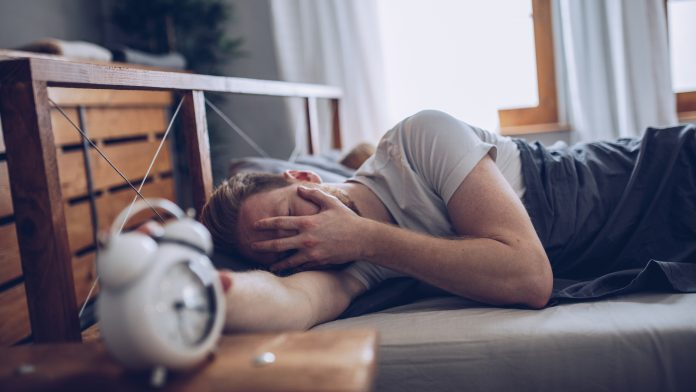Assist yourself with sleep issues and benefit from improved mental health!

Assist yourself with sleep issues and benefit from improved mental health! Do you have any notion of what to do if you are experiencing a true breakdown? Rest! This may seem weird, yet enough rest may aid you in overcoming many more obstacles than you might imagine.
Sleeping well is a sign that twelve medical conditions are under control. Your heart is strong, your mind is fully charged, and so on. You’re protecting yourself from mental health problems, keeping your heart strong, and so on.
But maintain vigilance.
Consider a situation in which you are depriving your body of much-needed rest. Is it true that you’re putting your rest at risk for the sake of money, a job, or a few minor concerns? A distressing scenario requires your immediate attention.
Consider the inverse case, in which you are not getting enough rest. You’re having difficulty focusing at work, continuously feeling lethargic, your food regimen is disrupted, and you’re experiencing an array of unpleasant symptoms you never anticipated. Additionally, it might push you to the ultimate bottom.
Sleep and Psychiatric Disorders: An Invisible Connection
Individuals who have difficulty sleeping are often also dealing with psychological well-being concerns. This prompts us to consider the connection between relaxation, hygiene, and emotional well-being.
While you sleep, the cerebellum exercises fluctuate. For instance, the rest cycle is structured by a large number of resting organs that increase and decrease in activity throughout napping mode. To emphasize this, the rest cycle is separated into two phases: REM sleep and NREM sleep. When you are in REM sleep, the mind’s mobility is at its peak, and this is when real dreaming happens. Due to NREM sleep, rapid energy bursts are possible, but the cerebrum’s functions slow down.
What you should notice here is that your cerebrum is still active when you sleep. Agitate contemplations elicit improved thinking, memory, and learning. Many studies have found that how your brain moves while you sleep has a big impact on your mental and emotional health.
When you receive appropriate rest. Your mind’s capacities for remembering information and dealing with impassioned facts are hone. It affects a good attitude and passionate activity.
In comparison, when you do not get enough sleep, self-destructive thoughts and behaviors, mood swings, and dismal moods all kick in. As can see, the relationship between rest disorder and psychological well-being is bidirectional. A change in one affects the other.
Rest problems may occur as a consequence or as a cause of psychological well-being problems.
What happens to you when you are unable to sleep?
If you have rest troubles, the development of psychological health disorders may devastate you. The following are the standard ones you should be familiar with:
- Nervousness
- Depression
- Occasionally, a heartfelt concern occurs.
- Bipolar disorder
- ADHD
- Schizophrenia
- Mental Illness: Disorders on the Spectrum
To elaborate, those who are sleep-deprived are prone to pessimism. They get dejected as they become aware of the fight to decide. It seems as if things are worsening. As a result, daily life and work is disrupt.
Additionally, OSA may further devastate the situation. Obstructive sleep apnea, or OSA, is a kind of sleep disorder associate with emotional well-being. It is caus by sleep disruptions in breathing rate during rest time and low oxygen levels in the body caused by dozing. It disrupts the rest of the world with its effects and discontinuities.
OSA occurs more often in mentally ill people. It impairs their physical well-being and also results in serious emotional agony.
Is jumbled sleep a cause of psychological maladjustment?
How about we think of the knowledge that came before the rest as the main cause of psychological problems?
- Between 10% and 18% of adults in the United States of America have chronic sleep problems.
- Between 65 and 90% of people who are depress also have sleep problems.
- 90% of anxiety disorder patients also suffer from sleep issues.
- Between 20% and 25% of children with ADHD have difficulty sleeping.
Assist Yourself! Restore a High-Quality Lifestyle After Sleep Disorders
How long could you go without sleep? This lack of rest will exhaust you! Consider the variety; you’ll soon be living a life of low quality. In any case, what are the critical actions you should take once you see that sleep issues or psychiatric diseases are causing devastation in your life in the same way that damnation does?
Counseling The expert will assist you in determining many critical aspects of your leisure time. It will make you more confident that you can get your composure back with normal supplements like Modalert 200mg and Modvigil 200mg, which aren’t sleeping pills but help your brain.
Then, you may be prescribed to make the following minor lifestyle changes:
- Avoiding tea, coffee, and excessive alcohol consumption before going to bed.
- Meditation before bedtime
- Listening to music that relaxes your brain
Avoid unnecessarily tense situations.
You may include the proclivity for writing before falling asleep in your daily routine. You might attempt to write your bios as a foolproof strategy for relieving mental stress. As with The Doe, you might distribute these accounts in phases.
Final Thoughts
Adapting your life to your body’s intrinsic clock may be all you can manage at any time. Artvigil 150mg is one of the medications that will aid you in achieving your objectives. When sleep apprehensions become a regular part of your life, you should act quickly to standardize them. Everything else will take care of itself. In the same way, if you start therapy right away, you may be able to recover your psychological well-being.





